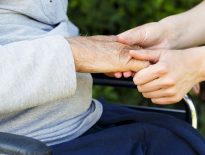A healthy lifestyle starts with acquiring information properly. In a world flooded with information, patients are often confused and overwhelmed by conflicting nutritional recommendations and spectacular promises about proposed diets. In this context, it is essential to assess the validity of information using well-established criteria.
One key principle is that chronic diseases, which are significantly influenced by poor lifestyle choices, cannot be treated with a dietary supplement or extract alone.
Conditions such as diabetes, cardiovascular disease, and cancer are leading causes of mortality and disability worldwide. More than two-thirds of these cases are directly related to lifestyle factors such as an unhealthy diet, smoking, physical inactivity, and alcohol consumption.[1] Addressing these underlying causes can significantly reduce the symptoms of the disease or even cause it to go into remission.[2][3]
It is important to understand that chronic conditions have multiple causes. Take type 2 diabetes, for instance. If lifestyle risk factors (like an unhealthy diet, lack of exercise, and being overweight) aren’t dealt with, we can’t expect a cure or remission just by taking a supplement, drinking a tea, or eating an exotic fruit extract, no matter how strongly the opposite is claimed. At best, isolated solutions can provide temporary relief, but they cannot replace the profound lifestyle changes needed.
Discernment in the age of influencers
In today’s digital age, the online space is full of recommendations from influencers and “medical entertainers” (a term coined by diabetologist Adrian Copcea), who propose all kinds of nutritional interventions or offer their own models of healthy lifestyles. While some of these individuals may have medical training, this is often not in the field of nutrition, and this lack of expertise is evident in the way they argue their points of view. So, how can we ensure that the information we receive is accurate and beneficial to our health? Below are some criteria worth considering, because our health is too important to be left in the hands of the uninformed or those motivated by dubious or commercial intentions.
The purpose of the website. Is the nutrition information provider trying to sell us something? Are they trying to sell us a nutrition programme or a nutritional supplement, preferably immediately, before the special offer or mega discount expires? Such indications should make us sceptical about the accuracy of the nutritional information provided on that website.
Competence. Who is making these nutritional recommendations? Do they have solid knowledge and relevant experience in nutrition, gained through academic training, research, or professional practice? It is crucial to ensure that the recommendations are based on a solid knowledge base and not just personal opinions.
Professional experience. What is the basis for their nutritional recommendations? Are their suggestions the result of consistent professional experience? How many patients have they helped, and what were the results? This is an indicator of the reliability of their advice.
References. Are any verifiable research studies in the field of nutrition cited to support the information presented?
Author identity. Avoid anonymous sources or those that do not provide verifiable details about the experience and training of the person offering nutritional advice.
Spectacular results. Promises of quick and easy results are often too good to be true. Health and nutrition require effort and time; there are no magic solutions.
Grammatical errors. If a page contains grammatical or spelling errors or is poorly translated, this indicates a lack of professionalism and/or reliability of the information.
Verification. Nutritional recommendations should always be verified from multiple sources. This could involve looking for studies on the subject, expert articles and presentations, or seeking the opinion of a specialist.
Case study
“Some people have been cured of cancer by fasting… not for a day or two, but for two weeks, or even a month.”[4] This statement was made by a prominent influencer in the Romanian online community. After being exposed to such a message, it is vital to react both cautiously and wisely, carefully evaluating several essential aspects.
Experience and knowledge. The person making this statement is a trained cardiologist. But does he actually practise cardiology? The answer is no, and he does not have a licence to practise. Has he taken any courses in nutrition? Again, the answer is no. Does this person have solid knowledge of nutrition obtained through rigorous academic training, extensive research, or professional experience? In this case, too, the answer is no.
Experience with cancer patients. Has he ever worked with cancer patients before? Has he focused his nutrition work on these patients? No, he does not currently work in this area or interact with such patients.
Specifics about the cancer. Does he specify the type of cancer that could be cured by this method? Does he provide us with a specific patient profile who could benefit from this approach? Does he present us with figures, data, or concrete examples? Unfortunately, he does not provide us with any concrete details in this regard.
Professional integrity. It is crucial that professionals recognise the limits of their knowledge and do not offer advice outside their area of expertise. This does not mean that only nutrition specialists can speak on the subject, but rather that any recommendation should be backed up by solid evidence and presented with caution and responsibility.
Scientific basis. Did the person present credible evidence or sources to support their claim? No. It is essential that information is based on current studies and research rather than personal opinions.
Solid argumentation. What concrete arguments does he offer to support the claim? Unfortunately, no verifiable arguments are provided, only an unfounded claim.
Independent verification. If we search the literature, will we find any studies that support this claim? There is no research to confirm the claims of the non-practising doctor.
What criteria should we use to identify reliable sources in nutrition? It is recommended that we turn to professionals with nutrition-focused training, as this provides them with a solid knowledge foundation in the field. However, we should not overlook the value of direct experience and rigorous research. Even if they do not have a strict nutrition specialisation, many health professionals can offer relevant nutritional advice based on their clinical experience and the research they have conducted. It is important to verify that these specialists rely on scientific evidence and frequently consult current and relevant studies.
Laurenţiu Daniel Roman is a specialist doctor in diabetes, nutrition, and metabolic diseases. His work focuses on prevention and explores the impact of a healthy lifestyle on managing chronic conditions and the possibility of their remission. He works at the specialist outpatient clinic of Râmnicu Sărat Municipal Hospital.


















